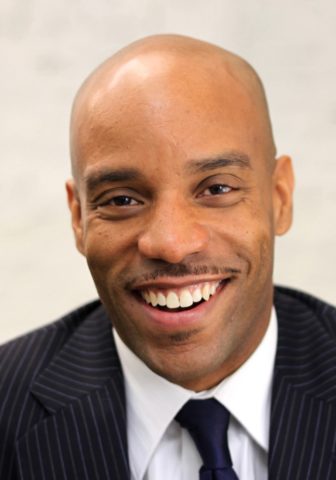
 In Michigan, 17-year-olds are not allowed to buy lottery tickets, get a tattoo, rent a car or hotel room or drop out of school. They can’t vote, serve on a jury or sign a legal contract either, presumably because they don’t possess the requisite maturity to make adult-level decisions. This distinction, however, is tossed out the window if a 17-year-old breaks the law. Suddenly, they are adults, facing devastating repercussions that can come with an adult conviction.
In Michigan, 17-year-olds are not allowed to buy lottery tickets, get a tattoo, rent a car or hotel room or drop out of school. They can’t vote, serve on a jury or sign a legal contract either, presumably because they don’t possess the requisite maturity to make adult-level decisions. This distinction, however, is tossed out the window if a 17-year-old breaks the law. Suddenly, they are adults, facing devastating repercussions that can come with an adult conviction.
That’s because Michigan is one of only five states that automatically consider 17-year-olds adults for any offense. In the past decade, more than 20,000 youth under age 18 have been charged as adults in Michigan.
The majority of these 17-year-olds were charged with nonviolent offenses, and most had no previous involvement in the juvenile justice system. But in Michigan, a first-time mistake can lead to a lifetime of harsh consequences.
Despite the inherent dangers of placing a child in prison, more than half the 17-year-olds convicted as adults were confined in adult facilities. Research shows that youth in adult jails and prisons are more likely to experience sexual victimization and physical violence, and more likely to commit suicide. Even exposure and proximity to violence can severely disrupt the course of healthy physical, emotional and intellectual development in teens.
It is not surprising, then, that youth convicted as adults have worse physical and mental health outcomes over their lifetimes than those who enter the juvenile justice system. Their problems are compounded by the fact that youth with criminal records have a harder time accessing housing, furthering their education and securing long-term employment.
Youth with adult convictions are more likely to reoffend, and reoffend more violently, than their counterparts in the juvenile justice system. If the goal of our justice system truly is public safety, then directing these young people to rehabilitative youth services is a far better choice.
So, why are 17-year-olds considered adults in the first place? Because that’s how our system was created in 1908 — the year the first Ford Model T automobile was introduced. A century later, Michigan desperately needs a new model for adjudicating youth.
Michigan’s juvenile justice system isn’t perfect but it does strive to continuously make itself better. Over the past decade, some juvenile courts have begun embracing evidence-based practices that are proven to reduce crime and improve outcomes for children and their families.
During the same time span that tens of thousands of 17-year-olds were systematically funneled into the adult criminal justice system, Michigan’s innovative juvenile justice system managed to cut detention and out-of-home placement rates by 40 percent. We have seen the emergence of high-quality diversion and community-based programs that allow kids to stay in school and receive treatment for their entire families. Unfortunately, 17-year-olds who commit crimes are prohibited from accessing these services; their options are adult probation, jail or prison.
Michigan’s juvenile system already serves 17-year-olds who entered their jurisdiction prior to their 17th birthday. In fact, the juvenile court can maintain jurisdiction until one’s 19th or 21st birthday, depending on the offense. Probation and facility staff are already trained to work with this age group and offer successful programming designed to meet their developmental and behavioral health needs.
This is important because we know that adolescence is a period of significant developmental growth, characterized by impulsivity, risk-taking and strong influence by peers. As part of normal human development, young people experience rapid physiological and psychological changes that do not fully mature until well beyond age 18.
These changes establish the architecture that will eventually allow young adults to temper risk-taking behaviors, evaluate costs and benefits and fully grasp the consequences of their actions. As such, youth are far more amenable to rehabilitative programs and behavior modification during these formative years. Conversely, harsh treatment during adolescence can further solidify a child’s trajectory down the wrong path.
Experts estimate that 90 percent of justice-involved youth have experienced at least one traumatic event. In Michigan, the vast majority of youth convicted as adults have had a friend or family member killed, domestic violence or substance abuse in the home, multiple foster home placements or parental incarceration. Rather than retraumatizing youth by sentencing them to prison, we should support them with juvenile justice services that build their coping and resilience skills and teach them accountability.
In the past 10 years, numerous other states have raised the age of jurisdiction, citing improved public safety, greater access to children’s services and better outcomes for youth and their families. The other four states that prosecute 17-year-olds as adults — Wisconsin, Missouri, Georgia and Texas — are also considering legislative changes to raise the age.
The proposed legislation in Michigan would continue to allow for the “waiver” of a 17-year-old into the adult system, depending on the seriousness of the offense. Those youth would be housed in a juvenile facility until they reach the age of majority, and then sent to an adult prison.
Why hasn’t Michigan raised the age yet? The short answer: money and a lack of political will. During legislative hearings in 2016, every single stakeholder group — from prosecutors to judges to facility staff — clearly stated that raising the age was the “right thing to do.” The big question was, “How do we pay for it?”
Other states have managed to pay to raise the age and, as it turns out, at a much lower cost than initially anticipated. In Illinois, the overall cost of the system actually went down after raising the age.
It is true that Michigan’s funding system poses unique challenges. The state pays the full cost for inmates in the adult criminal justice system, while counties pay costs in the juvenile justice system with the state reimbursing half of eligible expenses. Counties rightly fear they may get saddled with massive costs if 17-year-olds automatically come into their systems, and that serving additional youth will impact the quality of their existing services.
There are data limitations as well. But none of this excuses legislators and other policymakers from finding solutions that nearly every other state has come up with — solutions that will enhance public safety, protect existing services and help more troubled youth turn their lives around. We have the brainpower to figure out the funding. Now we just need the willpower.
At the end of the day, we must ask ourselves one important question: Have I done everything I can today to prevent a child from being harmed? With each passing day, young people are forced into an adult justice system that does not address their needs and, in fact, exposes them to significant physical harm and psychological trauma. For their well-being, for the safety and protection of our communities, it’s time to raise the age in Michigan.
Paul Elam, Ph.D., is the president of Public Policy Associates, Inc. and has worked on national, state and local efforts to create fair and effective juvenile justice policies and practices. He is a board member of the Michigan Council on Crime and Delinquency and a consultant to the Michigan Committee on Juvenile Justice.
Mary King is executive director of the Michigan Council on Crime and Delinquency. She previously served as community coordinator for the Michigan Prisoner ReEntry Initiative, where she engaged key stakeholders in a unified effort to provide evidence-based services for returning citizens.
Pingback: Tis' the season for many important policy conversations about children's mental health! - ACMH